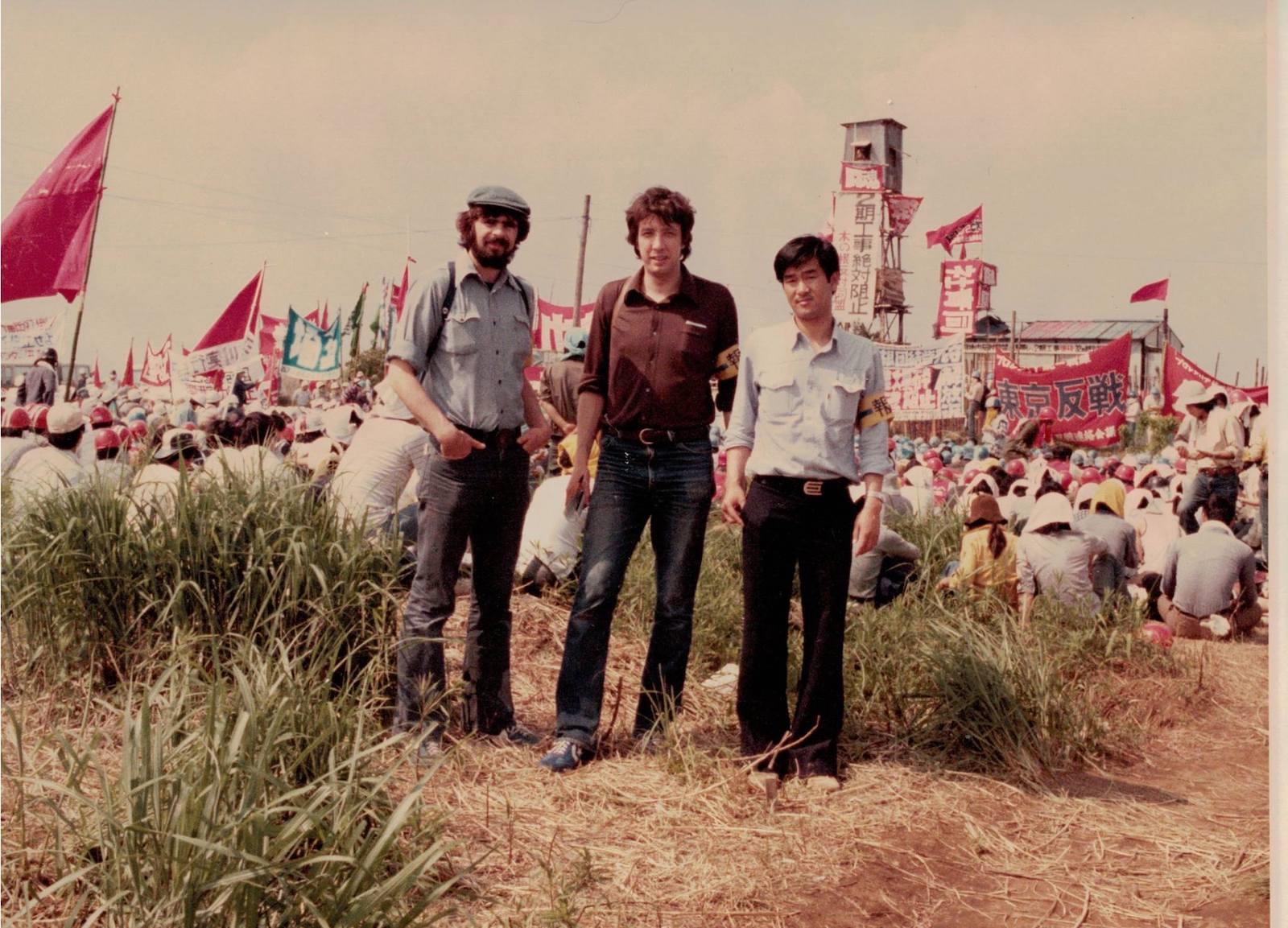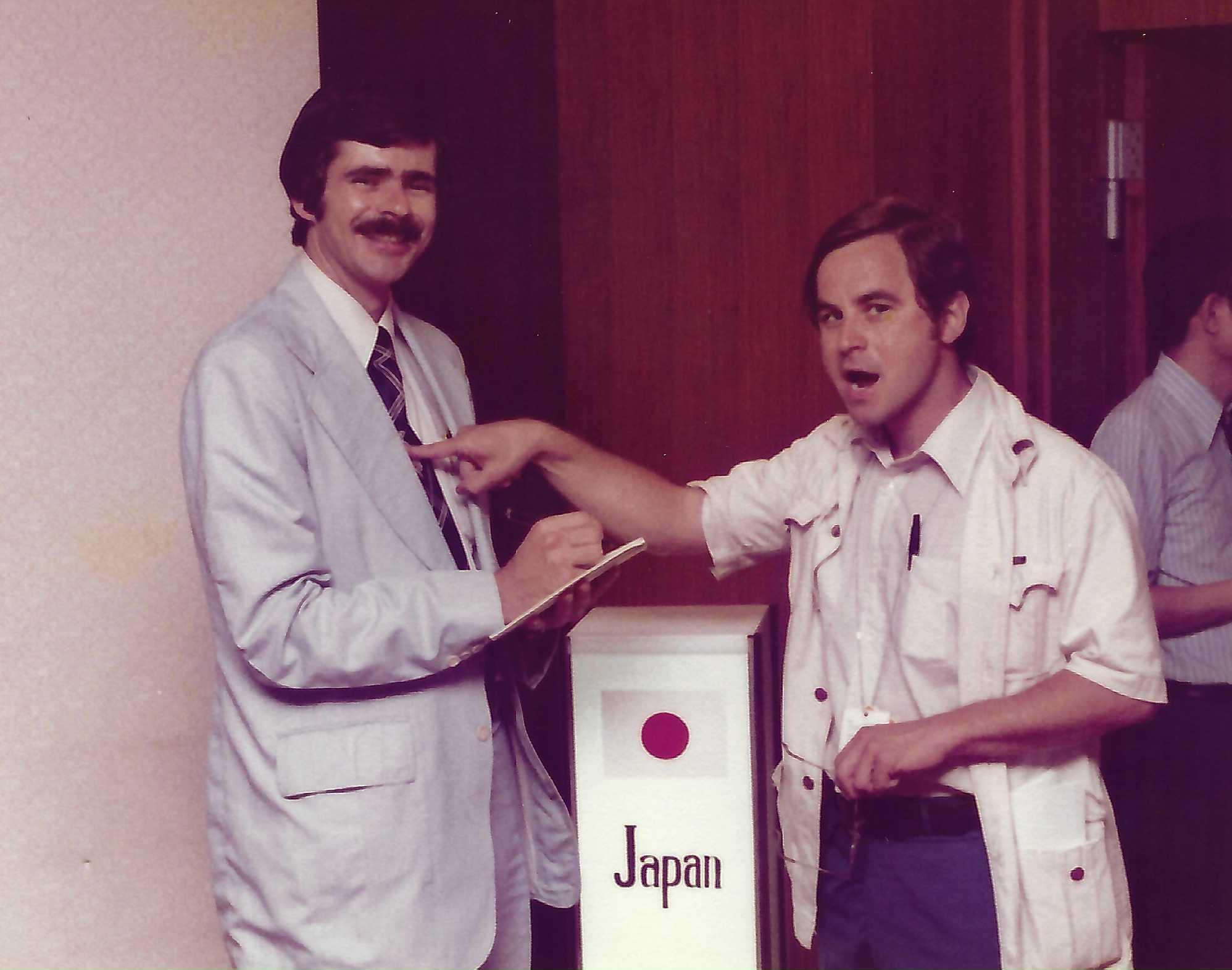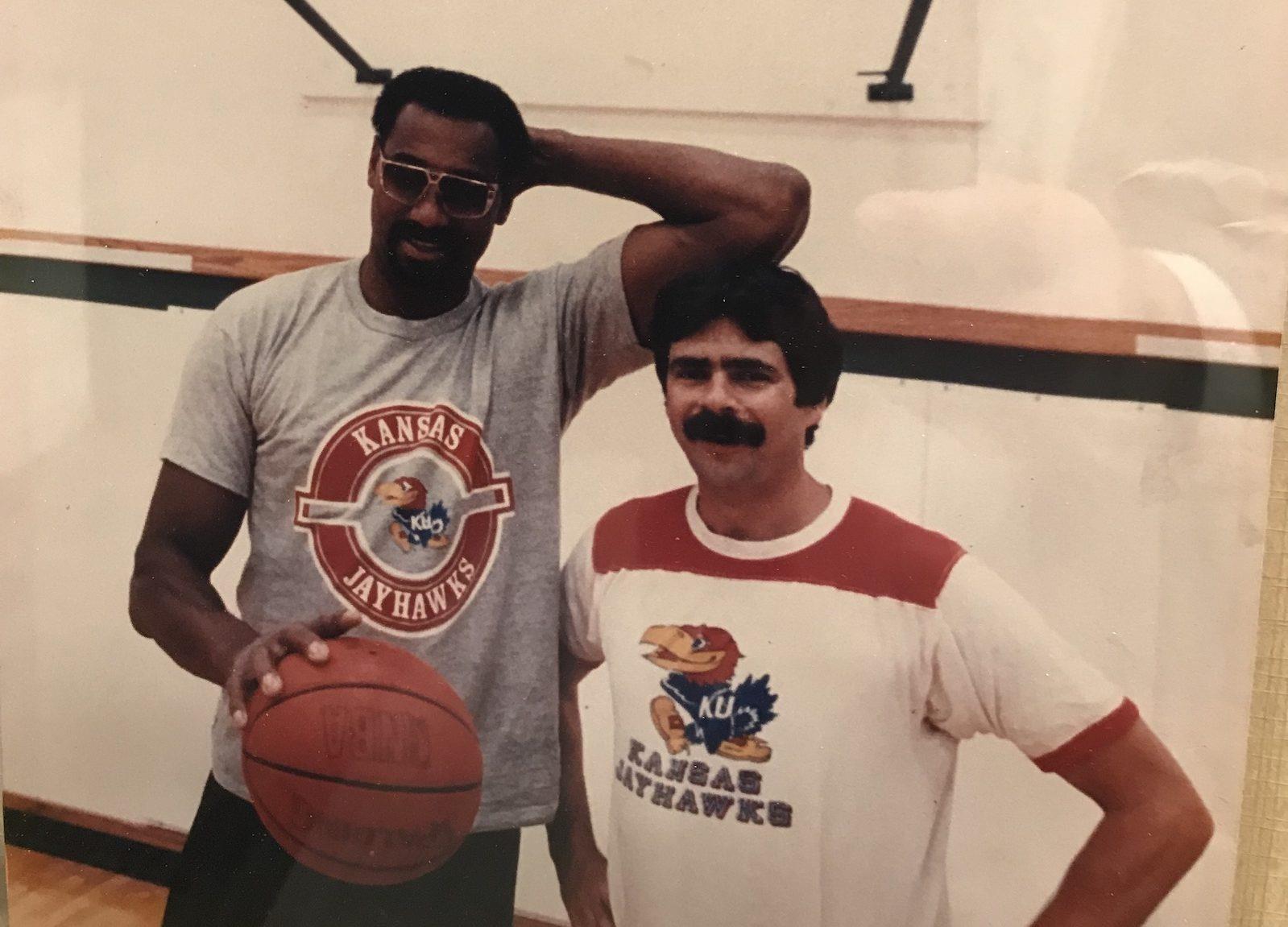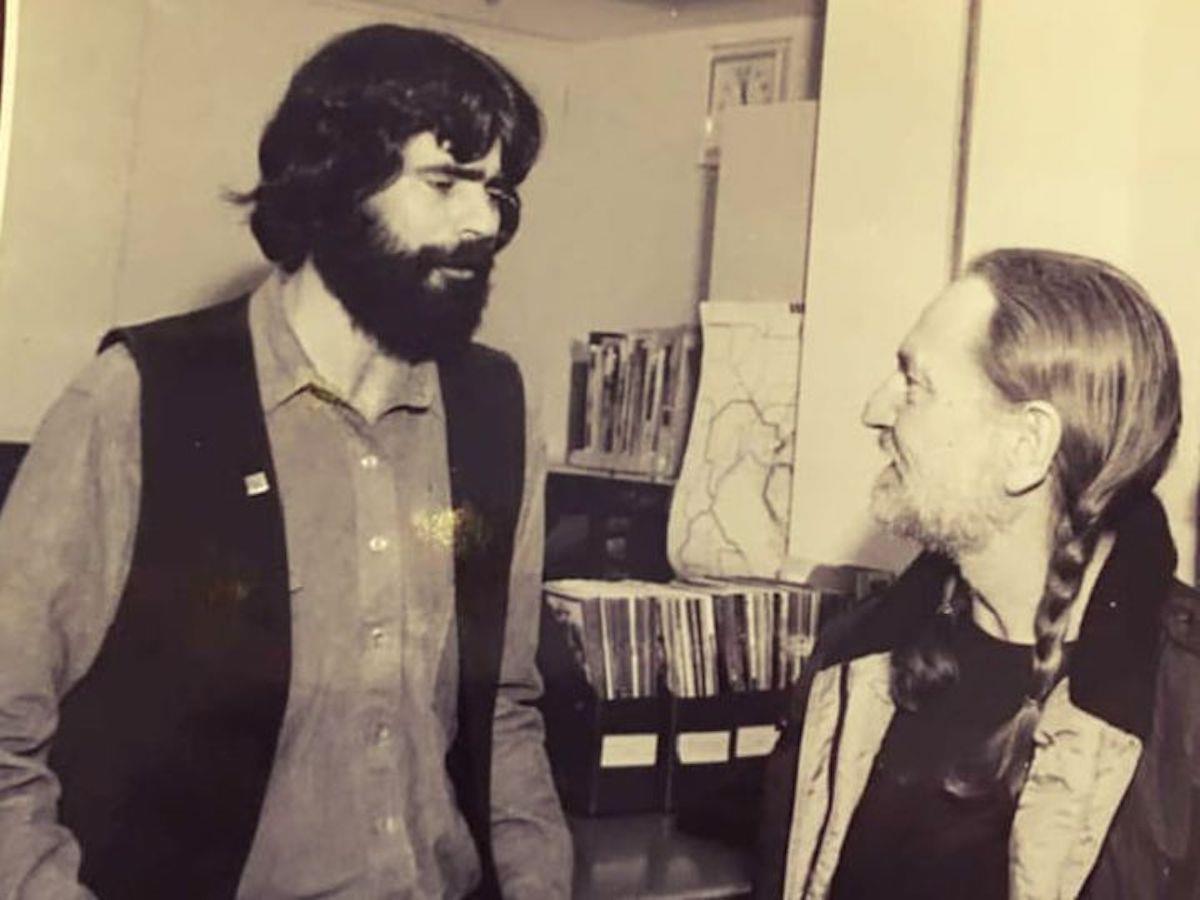(MENAFN- Asia Times) In another life he would have been a poet or a rock star. In this one Mike Tharp was a reporter's reporter with a poet's heart and a magnetic vibe that pulled into his orbit colleagues, friends and complete strangers who wanted some of that life force for themselves.
Michael Eugene Tharp, universally known as Buck, was a model foreign correspondent, revved up, rugged and resourceful. He was a professional listener with the unfaltering patience of a gem cutter, the bullshit detector of a great detective and a low boil for the deceit and tomfoolery of the powerful and privileged.
“What a strapping, swashbuckling, funny and perceptive man,” said Edith Terry, a fellow former Tokyo correspondent. His was a“life lived large all the way through.”
Buck left that life at a hospice in Dallas, Texas, on January 6 after a long fight with cancer. At his side in his final days were his wife Jeralyn Nickel, his children, Nao Tharp and Dylann Tharp, and members of his extended family. Buck was 77.
Buck moved through his career with aptitude and grace. Starting as a copy boy at the Topeka Capital-Journal at 16 in 1961, he spent 11 years in Tokyo during the period from 1976 to 1990, covering Japan and Northeast Asia for, respectively, the Wall Street Journal, the New York Times, the Far Eastern Economic Review and US News & World Report. While posted stateside in the 1990s, he deployed to cover wars in the Persian Gulf, Somalia, Bosnia and Albania/Kosovo for US News & World Report.

Mike 'Buck' Tharp of the Wall Street Journal (left), Tracy Dahlby of the Far Eastern Economic Review (center) and Tharp's Journal colleague Masayoshi Kanabayasihi are shown covering 1978 protests against the opening of Tokyo's Narita airport. Photo: Facebook
As the man himself said:“I knew what a foreign correspondent was.”
His experiences soldiering in Vietnam, for which he was awarded a Bronze Star, gave him a lifelong affinity with those who serve. In Iraq in the 2000s, he embedded with the US Army's 10th Mountain Division for McClatchy newspapers to report on a unit coping with PTSD while engaged in combat.
“Without Nam in my background,” he later wrote,“I couldn't have done that story.” In recent years, he wrote a column for the Dallas Morning News on veterans affairs. for asia times he chronicled the dark legacy of agent orange and other toxic chemicals the US used in Vietnam.
Buck was a gifted teacher and mentor. He taught journalism at the college level, including at California State University, Fullerton. His magic in the classroom is perhaps best summed up by Ameera Butt, now with the Los Angeles Times. She remembers the day guest-lecturer Buck strode into a journalism seminar at the University of Texas“in full-on motorcycle gear – all leather and looking like the badass [correspondent] he was. His speech was like lightning in a bottle.”
Yes, Buck was a badass. As former FCCJ colleague John Needham recalled, he“was courageous, covering war after war, barely escaping death, injury or kidnapping.” But badassedness took a backseat to a generous spirit.
urban lehner , then new in town for the Wall Street Journal, remembers Buck plying him with sources, despite the fact that they'd be going head-to-head on stories.“Having just come from the more cutthroat world of Washington I was bowled over,” Lehner said.
As an active member of the Foreign Correspondents' Club of Japan, Buck was well equipped to drive out the stodge. Like the night he went into his Elvis Presley routine in the main bar, jumped on a tabletop and, swiveling his hips, belted out an authoritative rendition of“Blue Suede Shoes.”
A fastidious club member took issue with the display of Buckish exuberance and a dustup ensued. But as Buck would have said, them's the breaks – in a club that supports a free press, members should be free to express themselves as they saw fit. Buck served as the club's president from 1989 to 1990.
Buck loved nothing better than to tell stories that put him on the receiving end of the joke. Returning from a triumphal reporting mission to Seoul, for instance, he treated himself to a first-class seat while the working stiffs wallowed in economy. When Buck's partying with corporate types (“sniffing wingtips,” he called it) escalated along with the noise, Bradley Martin, then of the Baltimore Sun (and now of Asia Times), had had enough.
He ripped back the curtain separating economy from first and shouted:“Would you please stop popping those damn champagne corks – I'm trying to write a story!”

Tharp, left, and a Tokyo contemporary, the late Asia Times correspondent Richard Hanson. Photo: FCCJ
No one could craft more direct, captivating sentences than the Buckmeister himself, as this 2019 Facebook memory shows:
As word spread in the shank of 2022 that Buck's end was near, the econmiums crested on social media:“I love that guy,” said Quentin Hardy.“We all love that guy,” said Robert Delfs.
Ditto for the staff at the Merced Sun-Star, in Merced, California, where Buck became executive editor in 2008. From the day he hired Ameera Butt to join a reporting staff he affectionately called the“feral dogs,” and ever after, she was impressed by how he“was always ready to help, always had my back,” and the interest he took in all his reporters“long after we left his newsroom.”

Tharp, pictured in Tokyo with NBA legend and fellow Kansan Wilt Chamberlain, could shot a mean layup until illness took him off the court Photo: FCCJ
Buck's distinctive flair for language was situated somewhere between his youthful stomping grounds – in Oklahoma and Kansas – and Wales, where as a graduate student he spent a year studying poetry at the University of Wales in Cardiff. When his rockabilly idol Elvis died in 1977, he put his poetry in motion, publishing“A Heart That's True” in the Asian Wall Street Journal, with lines that sounded vaguely autobiographical to some of us:

Tharp was also a huge admirer of Willie Nelson; they hung out when Nelson visited Tokyo. Photo: FCCJ
Those who knew him best reveled in Buck's contradictions.“He was stubborn and hilarious,” as his niece, Vanessa Tharp, put it in a Facebook post.“Wise and also a total smartass. He was fiercely dedicated to his work and had a lot of pride in who he was and how he lived.”
Buck lived to share that life force. Hugh Sandeman, a former Economist correspondent in Tokyo, said:“Mike was kind, to his friends and to people he didn't know well. Not sure that much matters for the human tribe beyond this simple virtue, and Mike certainly had plenty of it.”
And, of course, Buck stayed ever true to a desire to play his beloved craft forward. On that first day at work in Buck's newsroom in Merced, Ameera jotted down advice from the boss:“Show up. Be on time. Do the work. Tell the truth.”
“I carry it with me to this day,” she said.
Tracy Dahlby reported from Tokyo for the Far Eastern Economic Review, the Washington Post and Newsweek. He knew Buck Tharp for 47 years.
This article first appeared in no. 1 shimbun , the house organ of the Foreign Correspondents' Club of Japan. It is republished with permission.